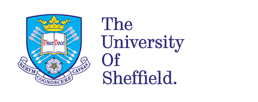
Marc C. Kennedy and Anthony O'Hagan
University of Sheffield
Publication details: Kennedy, M. and O'Hagan, A. (2001). Bayesian calibration of computer models (with discussion). Journal of the Royal Statistical Society, Series B. 63, 425-464.
We consider prediction and uncertainty analysis for systems which are approximated using complex mathematical models. Such models, implemented as computer codes, are often generic in the sense that by suitable choice of some of the model's input parameters the code can be used to predict behaviour of the system in a variety of specific applications. However, in any specific application the values of necessary parameters may be unknown. In this case, physical observations of the system in the specific context are used to learn about the unknown parameters. The process of fitting the model to the observed data by adjusting the parameters is known as calibration. Calibration is typically effected by ad hoc fitting, and after calibration the model is used, with the fitted input values, to predict future behaviour of the system. We present a Bayesian calibration technique which improves on this traditional approach in two respects. First, the predictions allow for all sources of uncertainty, including the remaining uncertainty over the fitted parameters. Second, they attempt to correct for any inadequacy of the model which is revealed by discrepancy between the observed data and the model predictions from even the bestfitting parameter values.
The method is illustrated using data from a nuclear radiation release at Tomsk, and from a more complex simulated nuclear accident exercise.
Keywords: CALIBRATION; COMPUTER EXPERIMENTS; DETERMINISTIC MODELS; GAUSSIAN PROCESS; INTERPOLATION; MODEL INADEQUACY; SENSITIVITY ANALYSIS; UNCERTAINTY ANALYSIS.